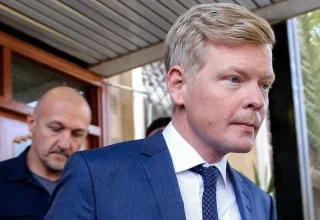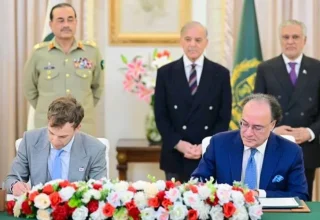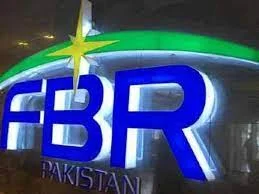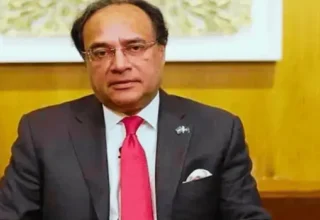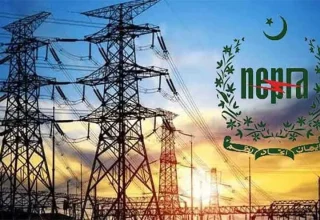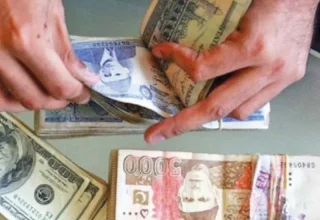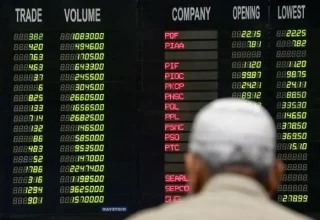
Pakistan’s stock market witnessed another steep decline on Monday, as political uncertainty, renewed border tensions with Afghanistan, and delays in the IMF loan program continued to rattle investor confidence.
The benchmark KSE-100 Index plunged 4,654.77 points, or 2.85 percent, to close at 158,443.42, marking the sixth consecutive session of losses. The market has now lost over 9,500 points in just six trading days, reflecting mounting investor anxiety over the country’s fragile economic and security situation.
According to media reports, 78 percent of all listed shares fell in value, eroding investor wealth by Rs5.33 trillion. The market also breached five key levels — 163,000, 162,000, 161,000, 160,000, and 159,000 points — during the day before closing slightly above the 158,000 mark.
Analysts attributed the heavy selling to geopolitical tensions, after reports emerged of a cross-border attack from Afghanistan in which 23 Pakistani soldiers were martyred and over 200 militants killed in retaliatory operations.
JS Global’s Head of Equity Research Waqas Ghani said the recent wave of uncertainty had triggered “broad-based selling across banking, energy, and cement sectors.”
Ahmed Shiraz of KTrade Securities noted that the market was already under strain from weak economic indicators, tight IMF conditions, and expectations of monetary policy changes, while recent terror incidents and TLP protests added further pressure.
According to Arif Habib Limited, the market opened in deep red and remained under pressure throughout the session. Major stocks like Bank Al Habib (down 5.19 percent), Engro Holdings (down 3.32 percent), and Lucky Cement saw notable declines.
Despite the bearish mood, trading volume reached 1.36 billion shares, with K-Electric emerging as the most active stock, recording 197.3 million shares traded. The PSX stated on social media platform X that 65 percent of total trading was in Shariah-compliant stocks, while foreign investors bought shares worth Rs617.1 million.
Market experts say that only a positive breakthrough in IMF talks and improved security conditions can help restore investor confidence and stabilize the market. Until then, uncertainty is expected to persist in the days ahead.









